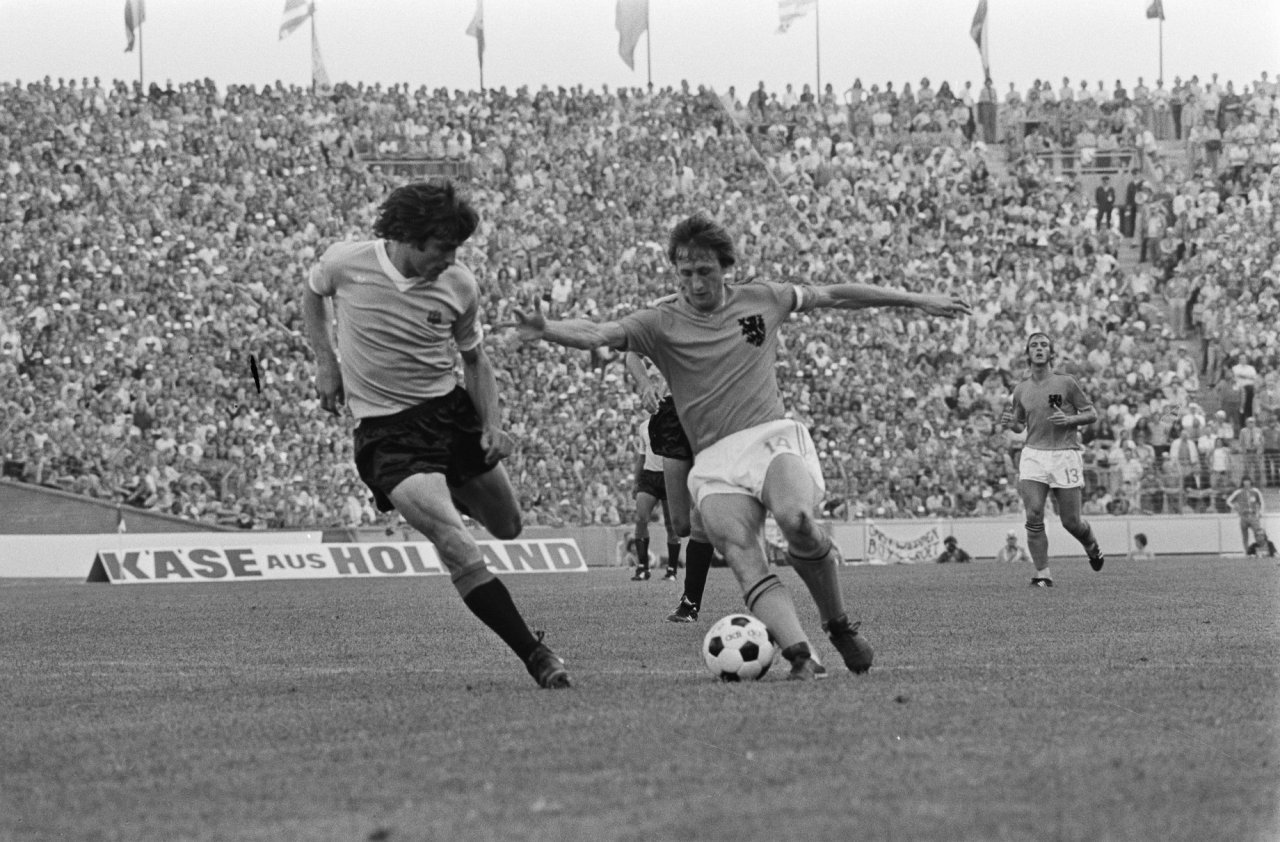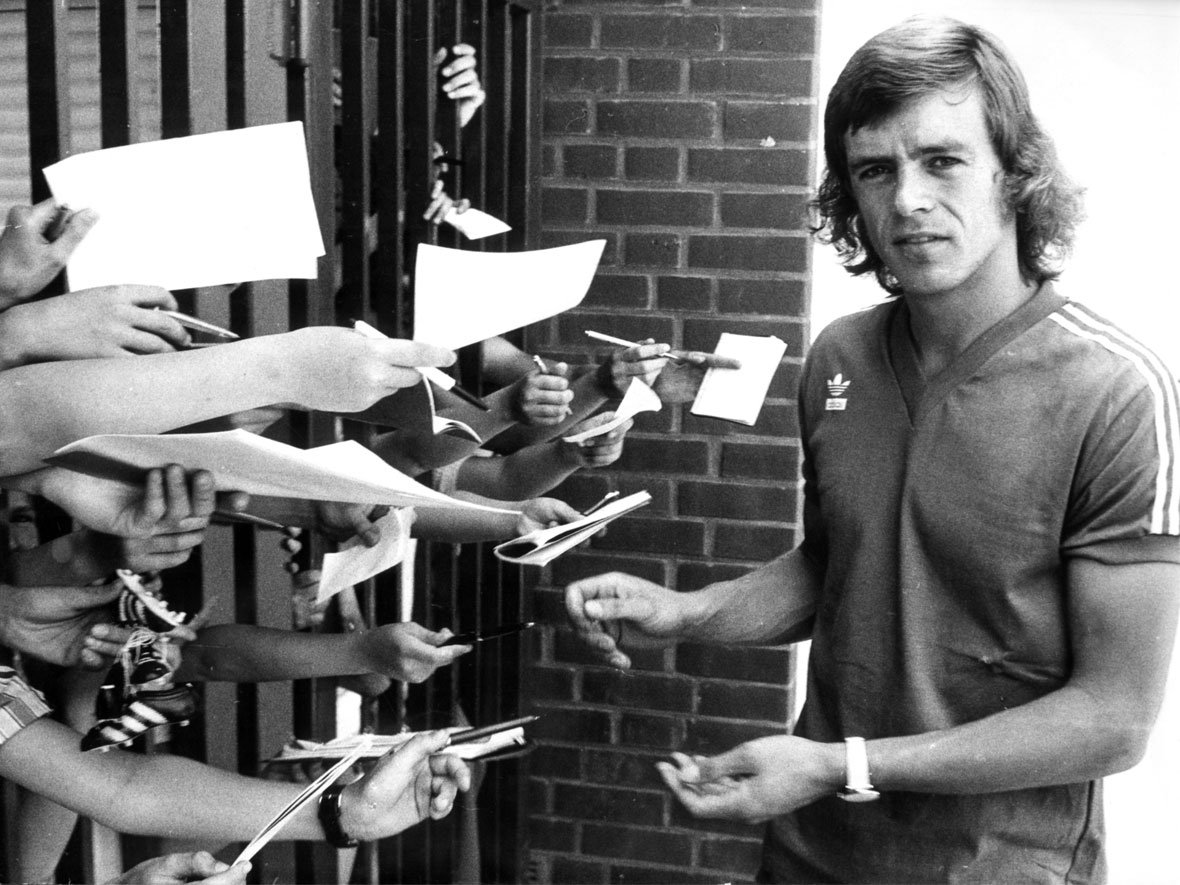Four years after forgetting to score the second goal against West Germany, Holland again qualified for the finals tournament of 1978. This time the fifteen (yes, fifteen – for the last time before FIFA embarked on its plan to have every country in the world qualifying for the endgame) countries who successfully negotiated the regional group stages would join hosts Argentina, the first time the trophy would be contested in South America since Chile in 1962.
In hindsight, it’s difficult to see how FIFA allowed the tournament to go ahead in Argentina. Two years earlier, General Videla’s fascist dictatorship took over the country, resulting in the disappearance, torture and murder of literally thousands of dissidents. Imagine that now, the World Cup being awarded to countries where political opposition and free speech are not tolerated and those who speak out are imprisoned at best. Is anyone looking forward to attending Russia 2018 and Qatar 2022? Plus ça change..
Cast your mind back a few weeks and we left our lads licking their 1974 wounds after delighting the world with their football from the future but sadly no trophy to show for their efforts. In 1976, they reached the semi-finals of the European Championships with almost the same squad that performed so well in West Germany. 1978 was a different matter altogether. Qualification was relatively straightforward – in a group featuring the Dutch, local rivals Belgium (again), Northern Ireland and Iceland, the only points dropped were in a 2-2 draw with the Irish in Rotterdam. This game featured the sublime skills of two of the greatest players who ever played the game – Johan Cruyff and George Best.
Safe passage secured, optimism abounded but sadly Holland would travel with several key absentees. Jan van Beveren of PSV, by far the best Dutch goalie, was unavailable (yet another who feuded with Cruyff), Ruud Geels of Ajax, a prolific striker (131 games, 123 goals!) was injured, Feyenoord’s Willem van Hanegem (by this stage a veteran at 34 but still massively influential and possibly the greatest passer of the ball in Dutch history) pulled out, Hugo Hovenkamp, the brilliant AZ attacking left back was injured but the biggest miss was the best player.
Controversy seemed to stalk Johan Cruyff and many reasons were put forward for his absence at this tournament. As we have previously noted, stories emerged that the night before the 1974 final, West German prostitutes were paid to party with the Dutch squad. Did this happen? Who knows. But one of the theories behind Cruyff’s no-show in 1978 was that his wife Danny decided to unilaterally remove him from temptation, resulting in Dutch media to name his time in the team BC – “Before Cruyff” and AD “After Danny”.
The truth was something more sinister and genuinely frightening. In his autobiography, Cruyff explained that in September 1977, an armed intruder burst into his house. In the ensuing struggle, the assailant ran away, but a van with a mattress in it was discovered nearby. The natural assumption was that a kidnap attempt had been foiled. Under these circumstances, Johan was unwilling to leave his family alone in Spain for the best part of two months, despite a campaign in Holland (“Pull Cruyff Across The Line”) to force him to change his mind. The die was cast and the Oranje were going to Argentina without their greatest ever player.
READ: “If Johan doesn’t like you, you can get another club”
No matter (who am I kidding?). When a window shuts, a door opens and these absences meant the gaps had to be filled and chances taken. Exciting newcomers such as Jan Poortvliet, Ernie Brandts and Piet Wildschut would all be given a place by coach Ernst Happel. With so many of the Ajax squad seduced by the lure of big bucks and foreign glory, only three of our lads were in the 22 – goalie Piet Schrijvers, midfielder Dick Schoenaker and captain Ruud Krol completed the Amsterdam contingent. Holland could still count on the bulk of the 1974 runners-up (in Suurbier, Haan, Rijsbergen, Rep, Neeskens, both Van de Kerkhof and Rensenbrink just for starters).
In 1974, Holland had a look of the glam rock era about them – four years on we had experienced the punk rock explosion (well, I had!) and the post punk era was upon us – Johnny Rep, perhaps in a nod to this, was using the bottle to highlight his hair.
The spaces previously occupied by those missing meant that places were up for grabs, but it was a familiar line up that took to the pitch against Iran in Mendoza for their opening match. A team of Jongbloed; Suurbier, Rijsbergen, Haan, Krol; Jansen, Willy van de Kerkhof, Neeskens; Rep, Rene van de Kerkhof, Rensenbrink looked rather familiar and had far too much for their opponents, who were appearing in the finals for the first time. A hat-trick from Rob Rensenbrink (who will go on to play a vital part as the story of this campaign unfolds) including two penalties, sending the goalie the wrong way on both occasions, gave the Dutch a nice, straightforward start.
The attendance at this match was 33,431 which was quite healthy given the frankly appalling turn-outs at some of the games. For example, the next Iran match against Scotland was 7,938. We should perhaps note at this point that once again, like 1974, Scotland were the only British qualifiers, with England failing again to get through to the final stages. After their elimination in 1970 (by West Germany, obviously) it would be 1982 in Spain when they would first appear again.
Next up for the Dutch was Peru, who had run rampant against Scotland in their opener, the brilliant Teófilo Cubillas tearing them apart with two goals after Manchester United’s Joe Jordan gave the Scots an early lead. A 0-0 draw (eerily reminiscent of 1974, when Holland drew their second game by the same score against Sweden, following a routine winning opening game) seemed to suit both sides, but set up a very interesting final group game between the Dutch and Scotland with the latter needing a big win after drawing against Iran, leaving them with only one point. Rensenbrink (again) gave Holland the lead and this could have given Scottish heads cause to drop, but no. They rallied quickly, Liverpool’s Kenny Dalglish equalising just on half time before Archie Gemmill gave them the lead a minute into the second half, following that with one of the greatest ever goals scored in a finals tournament. He slalomed through the Dutch rear-guard leaving Jansen, Krol and Poortvliet in his wake before lifting the ball over Jongbloed. 3-1 to Scotland. If it stayed like that, Holland were going home on goal difference.
Thankfully, three minutes later, Johnny Rep unleashed an absolute beauty from around twenty five metres which meant that qualification for the next round was secured. Similar to 1974, two four team groups, rather than a traditional knock out stage was up next, with the winner of each advancing to the final. Italy, West Germany and Austria were to make up the rest of the group.
Find out what happened next week in part two on AjaxDaily!

